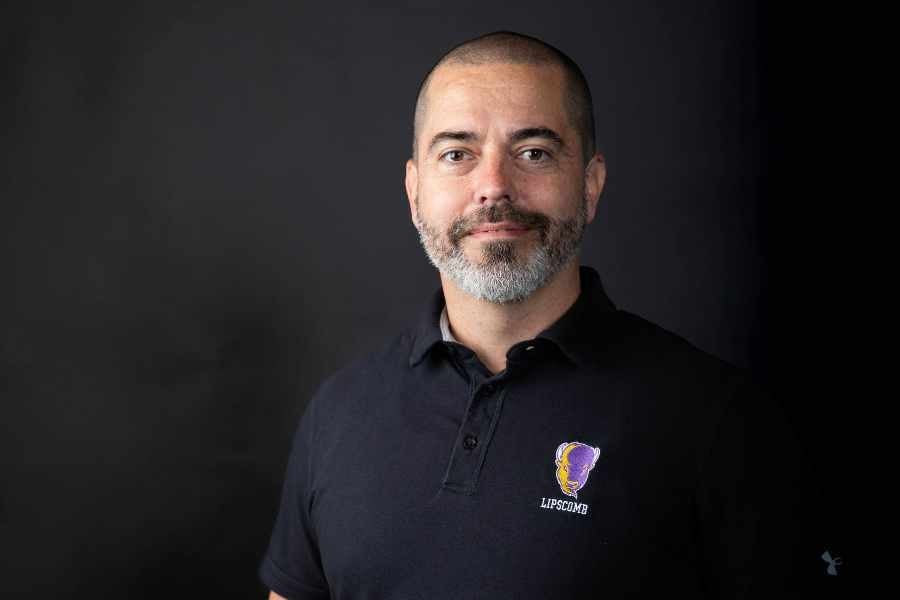Former NYPD hostage negotiator Jeff Thompson learns from crisis to teach resilience
From kidnappings to astronauts, leadership college faculty teaches the next generation to focus on the good and build healthy mental health.
From Staff Reports |

Through more than 20 years as a New York City police detective and hostage negotiator, Jeff Thompson learned a lot about the dark side of human nature and how crises come about.
After walking a beat, driving a patrol car, working in the public information office, and serving as a hostage negotiator, he came to a conclusion that the average person might not expect: a crucial way to protect the public is to protect the protectors.
“In the last part of my career, I turned primarily inwards, because… we do a really good job helping the public and taking care of them, especially when they’re in a personal crisis, but I realized that police don't do a great job of looking after themselves or each other,” he said.
During that last stage of his police career, he served as the mental health and wellness coordinator for the NYPD and conducted research and outreach on the department's suicide prevention and postvention efforts until 2022. He helped develop the NYPD's peer support training, where he was a lead instructor and helped oversee the more than 300-person group of uniformed and civilian members.
His research into hostage negotiation in terrorist incidents, suicide prevention, resilience and the use of effective communication during crisis incidents, also led him to the world of academia, becoming an adjunct professor in Lipscomb’s College of Leadership and Public Service in 2016 and an adjunct associate research scientist at Columbia University Irving Medical Center (CUMC) in 2019. He previously received his doctorate in Conflict Resolution from Griffith University in Australia.
Today, not only does he train a variety of audiences including police personnel, government officials, judges, attorneys and business professionals, but he also teaches Lipscomb’s graduates a pairing of the crisis communication he practiced for years in hostage negotiation and the self-care concepts that his research has shown helps develop resilience in the nation’s future crisis prevention corps.
The common denominator in all his work, he says, is human beings.
“A lot of what I teach in conflict communication, for hostage negotiators, is similar to what I teach to build resilience,” he said. “I realized that if it was helping fellow cops, then it can help the public too because we are all people first regardless of our professions. Students learn the concepts through this unique environment that they'll never actually be in. And then they take that and apply it to what they do on a daily basis.”
Most recently, his research has veered toward the role that awe plays in good mental health and work productivity. Thompson’s work at CUMC and Lipscomb and a series of studies conducted at NASA, have all fed into development of The Awe Project, a five-day program of accessible, convenient personal exercises designed to enhance one’s feeling of awe, which thus improves prosocial behavior, patience, handling the unknown, social connectedness, humility and positive mood, among other factors, said Thompson.
“It might surprise some but the positive impact of experiencing awe is profound. Awe can help a person transcend themselves and feel ‘small’ – in a good way,” Thompson wrote in a January Psychology Today article about experiencing awe leads to resilience. “What this means is it helps shape a perspective that does not focus on mundane things to feeling more humble, generous and connected to others. Each of these are connected to overall wellbeing and resilience.”
In June, Thompson’s study “NASA Resilience and Leadership: Examining the Phenomenon of Awe” was published in Frontiers in Psychology. His study, which included how NASA leaders support astronauts to prepare them pre-mission, during missions and post-mission, found that “reflecting on awe experiences can contribute to a person finding meaning and purpose in their life, evoke gratitude, increase social connectedness, promote optimism and other resilience skills in the moment, and generally have a sustainable positive effect.”
“Often people think that resilience is just bouncing back from tough moments,” said Thompson. “But it's not only focusing on how to handle tough moments, it’s also preparing for it, handling it in the midst and recovering. There's a whole other side to life – the good side, so let's make sure we look at those moments… reflect on some of the good stuff and realize that I'm responsible for my life successes.”
Hide